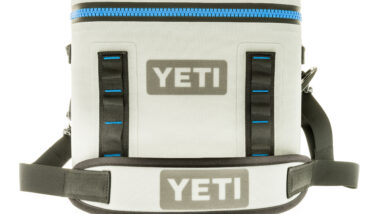Top Class Actions’s website and social media posts use affiliate links. If you make a purchase using such links, we may receive a commission, but it will not result in any additional charges to you. Please review our Affiliate Link Disclosure for more information.
In Canada, consumer law is handled by different entities, including government and non-governmental organizations. It is important for consumers to understand their rights under Canada’s consumer laws, as well as how consumer law protection applies to businesses.
Businesses who violate consumer laws may be subject to fines, lawsuits, and even criminal penalties.
In Canada, there are consumer laws at all levels of government. At the federal level, the law for consumer protection includes regulations regarding product safety, food safety, rules about labeling and packaging, price fixing, false advertising, and complaints about privacy violations.
Each province and territory also oversee consumer law protection regulations. Each province and territory may have agencies overseeing regulations regarding contracts, motor vehicles, debt collection, credit reporting, and purchasing goods and services.
“Finding the right place to direct your complaint is not always easy, but understanding your rights as a consumer is an important part of the complaint filing process,” notes the Government of Canada on its website about Consumer protection legislation in Canada.
Consumer Law Definition
Consumer law is a broad term referring to laws that cover the supplies of goods and services for use by individuals and families. It is distinct from commercial law, which refers to laws regarding transactions entities enter into for profit.
Consumer law is a relatively new concept; it began gaining steam after World War II and reflects the growing consumer culture in the modern marketplace. Its growth has been attributed to the urbanization of populations as well as the unprecedented growth of consumer credit.
What Does Consumer Law Cover?
As noted above, the law for consumer protection in Canada covers a range of issues, many of which affect how a business can be run. The following are areas that will affect how a business can be run to remain compliant with consumer protection laws.
- Product Safety
- Fraud and Deceptive Advertising
- Conflict Resolution
- Anti-Competitive Activity
- Food, Drug, and Vehicle Safety Regulations
- Consumer Privacy
- Others
How Does Consumer Law Affect Businesses?
In order to remain compliant with consumer protection laws, businesses must be aware of and follow various regulations both at the federal and provincial levels. The following are some common regulations affecting businesses.
Consumer Product Safety
On a federal level, the Canada Consumer Product Safety Act covers how businesses must make and distribute consumer products in a safe manner. The Act covers all products, except drugs, animals, food, and motor vehicles.
Anti-Competitive Activity
Federal law prohibits anti-competitive practices, such as price-fixing, with a mix of civil and criminal penalties under the Competition Act. This Act regulates how businesses can interact with their competitors in order to discourage conspiracies and other agreements that result in higher prices for consumers.
Fraud and Deceptive Advertising
A mix of federal rules regarding misleading advertising, labeling, and packaging regulates how a business can market its products. These consumer protection laws attempt to discourage businesses from misleading marketing practices, fraud, and other deceptive practices so consumers can be correctly informed about what they are purchasing.
At the federal level, the Consumer Packaging and Labelling Act encourages informed purchasing decisions on behalf of consumers by requiring businesses to put correct and meaningful information on the packages and labels their products bear. In addition, a specific law applicable to textiles, the Textile Labelling Act, requires that businesses selling these products use accurate labels.
In addition, there are a number of laws that require businesses to disclose information to consumers, particularly during financial transactions.
Food Safety
Businesses that make and sell food and beverage products must meet a myriad of requirements in place to protect consumers. Many food products are subject to inspection under Food Safety and Inspection Acts. In addition, the federal Food and Drugs Act regulates the nutritional quality and safety of foods in Canada.
Consumer Privacy
The Privacy Act and Personal Information Protection and Electronic Documents Act, run by the Office of the Privacy Commissioner of Canada, helps protect consumer privacy. Under these laws, businesses must protect sensitive information provided by their consumers.
Conflict Resolution
On a provincial level, consumer protection bureaus help individual consumers with complaints about a business. These bureaus can help guide consumers through the complaint process, including providing general information and to receive complaints.
In addition, the jurisdiction of small claims courts has been expanded to help consumers who cannot afford a lawyer. The ability to initiate a class action lawsuit is also an important consumer protection tool to help consumers hold businesses accountable for illegal and/or unethical behavior.
Read More Lawsuit & Settlement News:
How Does Consumer Law Protect Your Rights?
ATTORNEY ADVERTISING
Top Class Actions is a Proud Member of the American Bar Association
LEGAL INFORMATION IS NOT LEGAL ADVICE
Top Class Actions Legal Statement
©2008 – 2024 Top Class Actions® LLC
Various Trademarks held by their respective owners
This website is not intended for viewing or usage by European Union citizens.


















